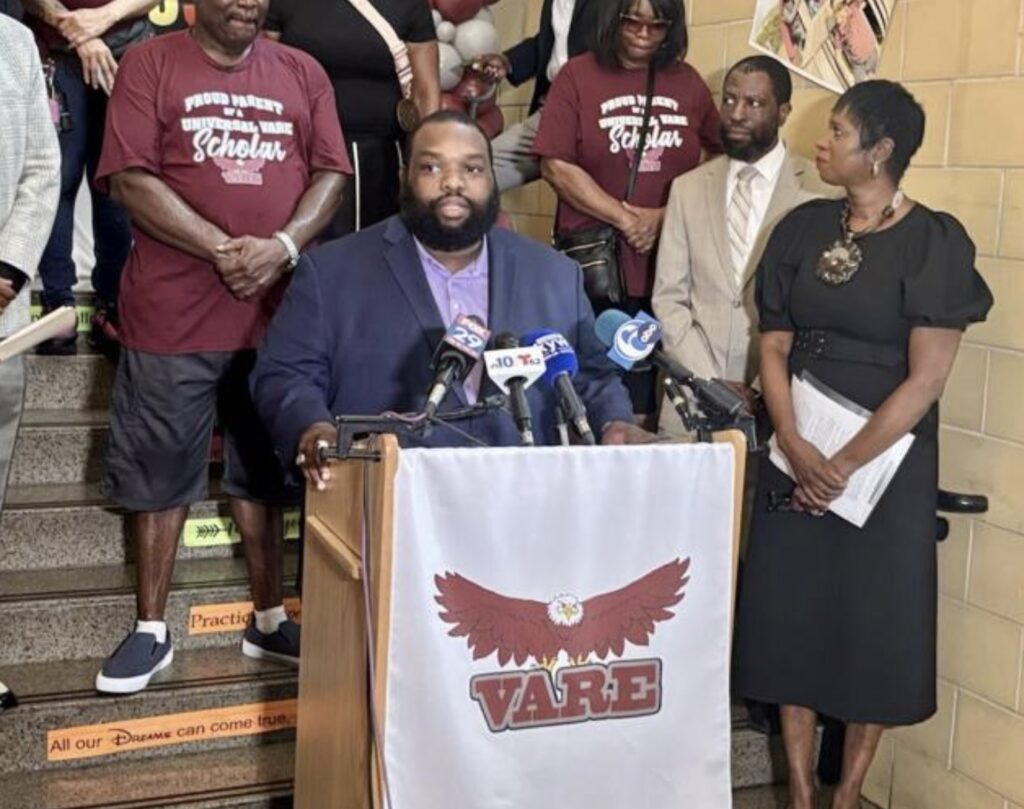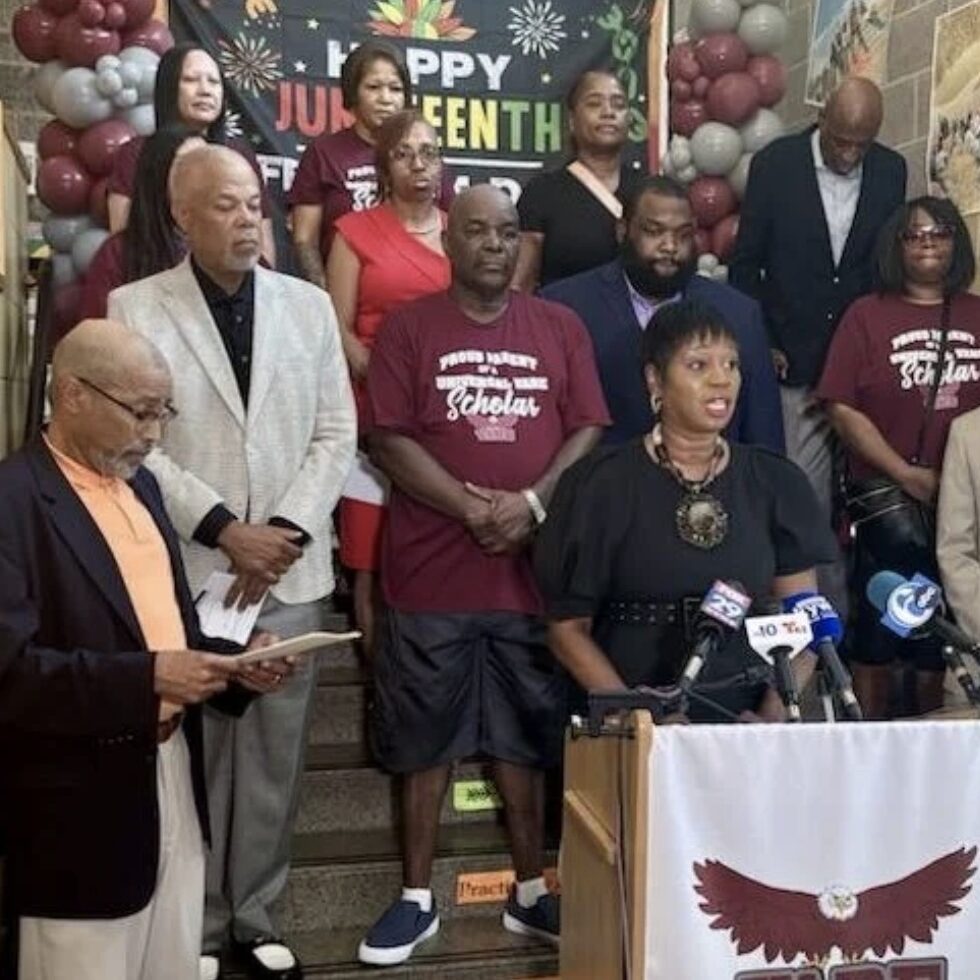O.J. Spivey TRIBUNE CORRESPONDENT


Officials at the Universal Vare Promise Neighborhood Partnership Charter School in South Philadelphia stood firm on Thursday in their decision not to pursue a five-year charter renewal after the 2025-26 school year.
They cited lower enrollment shifts and demographic trends across the city that included gentrification and lower birth rates.
The immediate plan is to focus on serving the remaining 100 students enrolled in grades 5 to 8 at the campus, which is located at 1901 South 23rd St.
The Vare campus will be the third school that the Universal Charter Schools network plans to end operations.The other two schools were Bluford and Daroff, located in West Philadelphia.
“While change can be challenging, the board respects and supports the school’s decision, which we believe is grounded in what is best for children,” said school board President Reginald Streater in a statement this week. “We commend the school leadership for taking a proactive and student-first approach, even when the path forward is hard.”
Universal Vare Principal Karen Howell-Toomer said she personally called every parent and guardian to deliver the message
“I wanted to assure them that their scholars academic program would remain intact and would continue to be stellar throughout this transition,” she said.
Held in the school’s lobby, Thursday’s press conference also included: Universal Board Chairman Christopher Hill; Universal Charter Schools Superintendent and CEO Penny Nixon; and parent representative Danielle Reavis.
“This decision was under review for as long as I’ve been on the board,” Hill said. “It was not about the school’s performance and certainly is not about any reflection in effort that the staff here through the years has made to keep this operation going.”
Nixon explained the importance of being upfront with all parties involved.
“While this announcement may stir feelings of sadness and uncertainty, it unveiled a valuable opportunity for us to lead with transparency, exhibit unwavering courage, and ensure that every scholar receives a thoughtful care and meticulous planning a rightfully deserve,” she said.
State Senator Anthony Hardy Williams and State Rep. Jordan Harris were also on hand.
“What we are clear about is what would have happened if they had not made this decision,” Williams said. “It was made by educators, a superintendent, a board, and by parents that do not want their children to fall into bad habits of the past, and conditions that they’ve seen in the past.”
Everyone who spoke at the presser seemed to be in unison with transitioning the campus and relocating an estimated 59 scholars who will need a new school after June 2026.
Vare officials said they will give the school building back to the district due to the asbestos. Due to holiday, school officials were unable to respond to that claim.
“I think it’s a testament to true leadership to be able to say that it is necessary for us not to produce the charter here at the school because by doing so, you’re actually doing a disservice to the people,” Harris said.
Reavis was one of several parents who stood in support of the school’s leaders and their decision.
“Universal Vare has been more than just a school. It has been a second home, a place where our children has felt seen supported and safe,” she said. “Our community is strong, and this final year will be a time to uplift our kids, celebrate their growth, and carry forward the legacy of what the school has meant to all of us.”
According to the Economy League of Greater Philadelphia, South Philadelphia has gotten proportionally whiter between 2016 and 2021. The Point Breeze neighborhood in particular saw an increase of roughly 2,400 white residents between 2016 and 2021, while losing more than 3,000 Black residents.
Harris spoke on the challenges of securing school funding amid the constant changes which has deeply affected Universal Vare.
“When you look at the totality, there are whole sections of Pennsylvania where students or people are shifting from one part of the state to the other. when we look at the state’s budget, school funding, mass transit funding, Department of Human Services funding, all of these things that are based off of the numbers of people,” he said. “You have to adjust based off of where folks are going. And no, that is not an easy task to do. But it needs to be done.”
The Stephen Girard school on 1800 Snyder Ave., which is Vare’s primary feeder school, only sends over 25 students to which Nixon said is not sustainable.
“The people moving into the neighborhood are not moving in with children,” Howell-Toomer said. “If they are, they are not sending them to local schools.”

